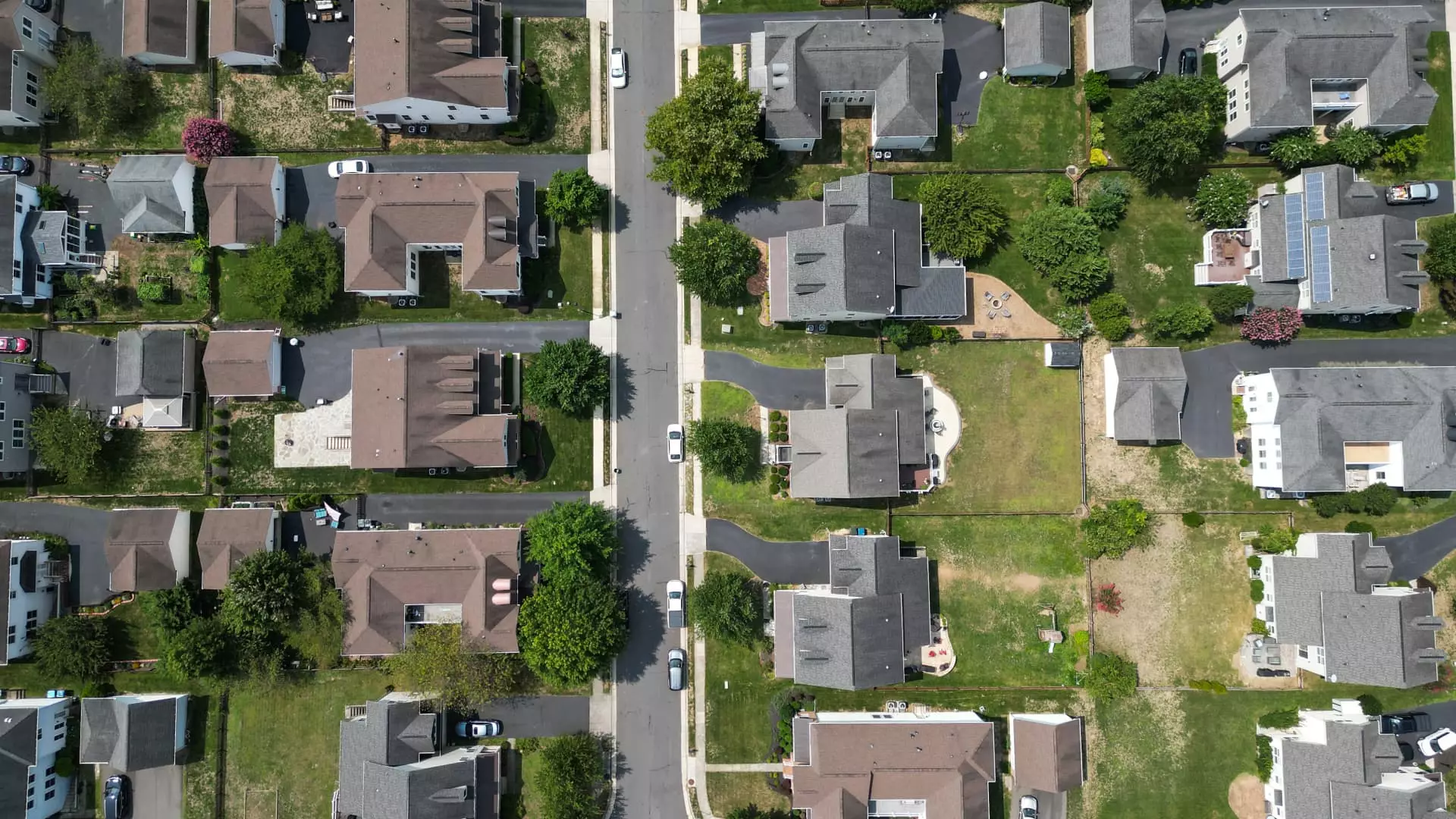In the ever-dynamic real estate market, mortgage rates play a pivotal role in influencing both home purchases and refinancing activities. Recently, there was a decline in mortgage rates, giving homeowners a brief window to explore savings through refinancing options. This decline, though modest, led to a significant uptick in mortgage demand, driven largely by homeowners looking to capitalize on potential savings opportunities.
According to data released by the Mortgage Bankers Association, total mortgage applications surged by 5.4% compared to the previous week. Notably, refinances saw a whopping 27% increase, reflecting a renewed interest among homeowners to reassess their mortgage agreements. The average contract interest rate for 30-year fixed-rate mortgages dropped slightly to 6.67%, a decrease that may seem trivial but carries substantial implications for long-term financial planning. Many homeowners are still operating under the rates locked in from 2020 and 2021 when the market often offered rates south of 4%. This creates a scenario where the current mortgage environment presents compelling opportunities for refinancing.
Despite rising refinance applications, the overall purchasing demand for homes has seen a decline, with applications dropping by 4%. This could imply various underlying factors, including potential buyer hesitation influenced by fluctuating mortgage rates. However, interestingly enough, the demand for home purchases has remained relatively robust year-over-year, a sign that the real estate market shows resilience despite external economic pressures. More specifically, purchase applications have seen annual gains in recent weeks, bolstered by a gradual increase in available inventory, which has the potential to stabilize the market.
With the ongoing fluctuations in interest rates, future mortgage rates may hinge on economic indicators such as the Consumer Price Index (CPI). Monthly reports on inflation provide critical insights into consumer spending and can influence the Federal Reserve’s decisions regarding interest rates. A rise in mortgage rates at the onset of the week, as indicated by a distinct increase of 10 basis points, suggests that the market is in a state of uncertainty, constantly reacting to economic signals. Thus, homeowners looking to refinance or purchase new homes should stay informed and consider the timing of their transactions carefully.
The recent trends in mortgage rates highlight a complex interplay between refinancing opportunities, purchasing demand, and broader economic indicators. Homeowners are currently in an advantageous position to explore refinancing, especially with rates being competitive relative to the historical lows of the past years. However, potential homebuyers may find themselves in a more precarious situation, needing to weigh their options against fluctuating mortgage costs and the overall health of the housing market. As the months unfold, staying informed will be crucial for all stakeholders involved in the mortgage and real estate sectors.

